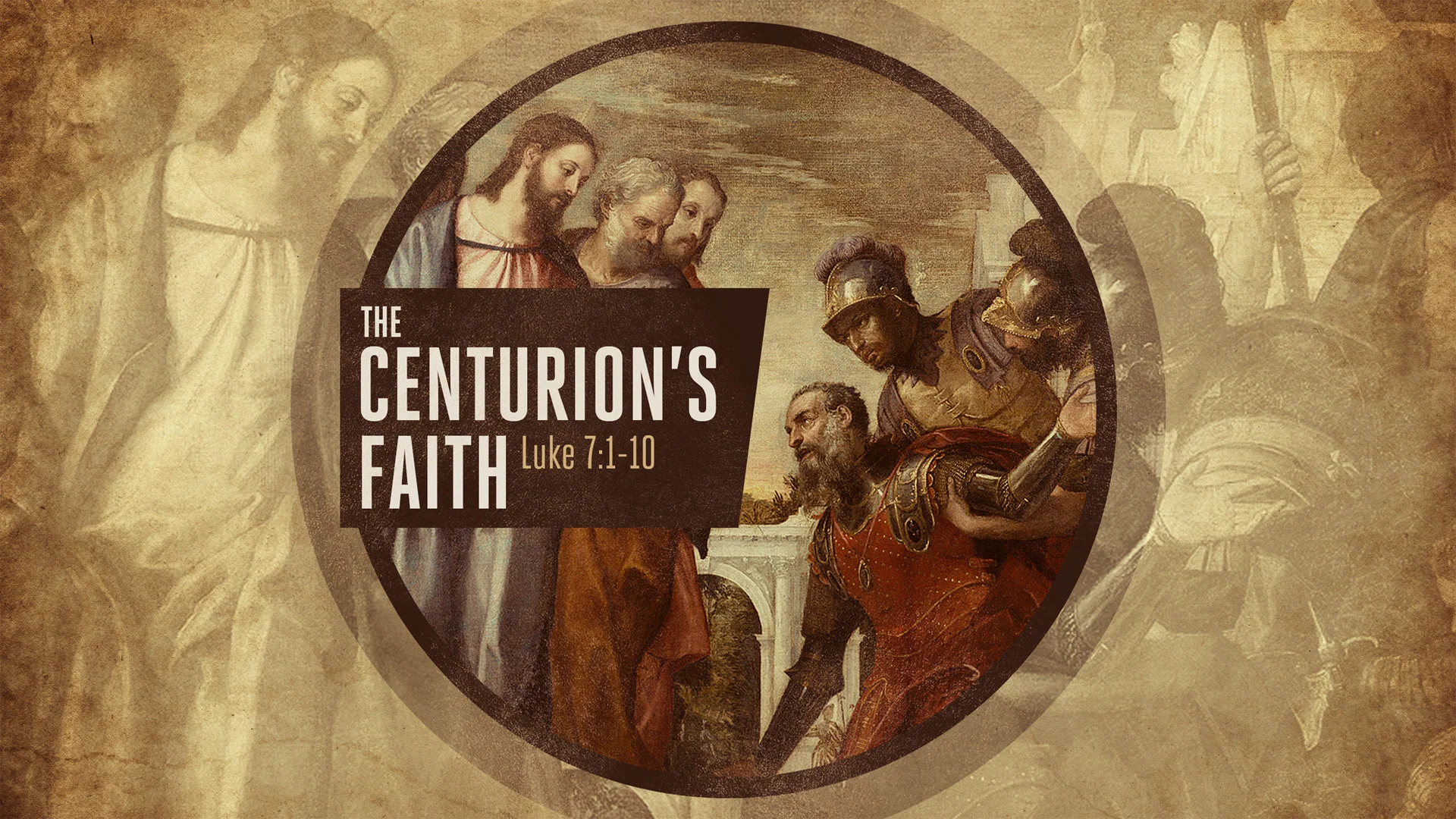Listening guide
“be you”
“Then you will know the truth, and the truth will set you free.” (Jn 8:32)
Edna Foa – immersive exposure therapy
1st idea: Only the ____________ can set you _________________.
“Everyone who sins is a slave to sin ... and if the Son sets you free you will be free indeed.” (Jn 8:34-35)
2nd idea: The more our truth is __________ and his ___________ over sin, death, and the devil, the more we will know his ________________.
“a son belongs to it forever” (verse 35)
Bible = An aerial view of your life
“Our pleasure and our duty, though opposite before,
Since we have seen His beauty, are joined apart no more.
To see the Law by Christ fulfilled, to hear His pardoning voice,
Transforms a Slave into a Child, and Duty into Choice.” (John Newton)
Discussion questions
None
Text
Not long after I came to Otsego, I had the chance to meet with the mayor. She gave me this advice about working and leading in this town. “be you”. “Don’t need to be trendy”, just “be you”.
When were you last told “be yourself”? If you can, tell the person next to you. (Pause for 30 seconds)
“be yourself” is probably the most common advice we give to students in high school and college. It means so much more to us than, “(My advice to you is to) be true to yourself and everything will be fine.” (Ellen Degeneres, 2009) One journalist urged her audience to “honor your character, your intellect, your inclinations, and, yes, your soul by listening to its clean clear voice instead of following muddied messages of a timid world.” (Anna Quindlen) That’s what “be yourself” means to many of us.
And the Bible actually says some of the same. It’s just deeper, more nuanced. It’s richer. St Paul told the people in Colosse, “He is the one we proclaim … so that we may present everyone fully mature in Christ.” (Col. 1:29) You know what that means, don’t you? It means God wants you to grow up fully. He wants you to become who you are supposed to be. Another example is Philippians 3. Paul says, “I want to attain the resurrection of the dead.” Again that means, he wants to be the post-resurrection person he is supposed to be. God intends to make you into that person.
God actually wants you to be yourself. What he wants is richer, more nuanced than what you and I actually mean. So he says today, hey, let me show you that you are free to be yourself. You’re free to be yourself. And he is going to tell us three things: what makes us free, getting free to be me, and staying free and becoming me
What makes us free
The main verse today is really popular, really well known. Jesus says, “Then you will know the truth, and the truth will set you free.” (Jn 8:32) Even if you aren’t a church going person, I bet you know this statement. “The truth will set you free”.
This statement is widely accepted. Both religious and nonreligious people accept it, even though it challenges us. It means that we have to face some kind of deep, dark scary monster to be free. Let me give us just one example of it.
There is a doctor out east named Edna Foa. A few years ago she was one of Time Magazines Top 100 people. She is a pretty well known person. And that is because she specializes in one kind of therapy. She calls it “immersive exposure therapy”. She works with women who have post traumatic stress disorder. What she does is actually pretty traumatic. She makes them live that traumatic experience again and again and again. She sits them down on her couch and makes them describe the experience in excruciating detail. The sights and the sounds and the smells. Over and over and over. She says that what happens, the process destimulates those events. It is rough. But it’s undeniably clinically beneficial. She would say two things happen: 1. the women get a chance to confess it. They got to confess what they went through. Number 2. The path from sickness to wellness, that is from A to B inevitably involves obstacles. Most people want to avoid the obstacles. You have to confront those obstacles head on. You have to run through them. Only the truth can set you free.
That's just one example. I would think to convince you, we’d probably need to do another 5. The basic point is just this. If you want to be free to be yourself, you have to have the truth. You can’t live in lies and falsehoods and be free. You have to face your monsters to be free. Only the truth can set you free.
Getting free to be me
That’s what makes us free. The truth. I would guess though that every one disagrees with me right now. Even if you’re saying, yes, that’s right, pastor, the truth sets you free. I still bet that if push came to shove every one of you would say, no pastor, the truth actually constrains me. I understand if you’re saying, how can the truth set me free? In my experience the truth constrains me. It controls me.
From my perspective, the truth forces me to do things that I don’t want to do. It forces me to feel things I don’t want to feel. It doesn’t seem to set me free.
I bet this example sounds familiar. I open my budgeting software. I see that my credit card payment went through. Does that make me feel free? (wait for an answer) Almost every morning I walk downstairs and an hour or two later 2 little kids walk downstairs (the other 2 are still sleeping). The first thing they say is, “Good morning. What’s for breakfast?” Does that make me feel free? Here is one more example.
I’ve been playing piano since I was a child. I think I started taking lessons around 10 years old. I played for a few years because my mom really wanted to and it was okay. But its not cool for a teenage boy to take piano. So when I was 12 or 13 I started to resist playing lessons. I definitely felt conflicted about it. On the one hand, I wanted to play music. I wanted to excel at it. I wanted to make beautiful music that people would love and enjoy. And the truth or the reality was, I wasn’t amazing, but I was on the way. It was slowly happening. On the other hand, I wanted my peers to accept me. I wanted them to approve of me. The truth or reality was I had a deep need for my classmates to like and they would only like me if I was good at cool things, like basketball and baseball. And so I wanted to quit.
You can sense how much conflict I was in. It was terrible. Awful. I remember when I was 14, I went to a few piano lessons at the beginning of the year. That was the deal. I told my mom I had decided to quit. She must have talked to dad and a few days later came back and said, Nathaniel, I’ll pay you if you take lessons for the year. I’ll pay for the lessons and pay you to take them. And if you next year you still want to quit, you can.
I remember driving up to the piano teacher’s house that next lesson. I hadn’t fully made up my mind. I bet I could still find that house. I decided, ok, I’m going to take the lessons. I didn’t instantly feel free. I didn’t walk out of there lighter than air. But slowly, surely, I began to see value of piano. I got to play in high school. I started to play for churches. I learned to sing well because I could easily read music. And now, I fill in gaps at Peace when it works.
I didn’t realize it then, but my mom did an incredible thing.
Did you hear what she said? She was telling me, I see you are in captivity. I see that your desires create conflict in you. On top of that, the truth that you need a place to belong and you need people to accept and love you trap you. They enslave you. She also said, I will buy you free from your captivity. I will pay the price so you don't have to be trapped between your desires and your classmates.
Jesus himself says, “Everyone who sins is a slave to sin ... and if the Son sets you free you will be free indeed.” (Jn 8:34-35)
What he means is, I see that you are in captivity. I see that your desires create conflict in you. I see that you simultaneously desperately want to love people and want them to love you. I will buy you free from your captivity. I will enslave myself to human beings and your desires. I will let you rule over me. I’ll do that so when sin, death, and the devil nail me to the cross, they’ll lose all power over you. Those desires won’t be your truth. Instead I will become your truth. I will be your truth. And you will be set free.
You and I will always have conflicting desires in us. But what is going to set us free is when there is someone outside of us, more beautiful, more wonderful, more excellent. When he is our truth instead of sin an death and the devil, then you and I are free. The more our truth is Jesus and his victory over sin, death, and the devil, the more we will know his freedom.
Staying free and becoming me
That’s not only how we get free. That’s how we stay free.
What the gospel is, is this: Jesus is the only legitimate child of God. He is the only real child of God. But because of his great love for us, he came and gave his life so that you and I, who are illegitimate children of God, can become legitimate children of God. (“a son belongs to it forever” (verse 35)
If you want to become you, you’ve got to constantly say, I don’t deserve to have God as a Father. I don’t deserve a thing. But because of Jesus Christ, I get to call God my Father and I get to live life in his house.
That is going to be hard, incredibly hard for each one of us because it means we are going to have to confront the deep, dark monsters of our lives that keep us from actually calling God our Father. We’ve got to stop trying to go around all that hard stuff and we’ve got to go through it. As Jesus says in the beginning today, we’ve got to hold to the teaching.
As an example, let’s imagine you are a person that just doesn’t happen to have a lot of hope in life. You don’t hope that God is watching over you, working for your good and taking care of you.
So now imagine you’re going through life and it’s kind of like being on M89 and then m40 all the way from here to Holland. You inevitably get stuck behind a truck going ten miles under the speed limit and you have to stop at all the lights in Allegan. As the miles creep by, you start to lose hope that you are going to get there on time, that you are going to finish your errands, and that in general your day is going to go well.
All you have is a linear view of the road. You can just see the truck and around the truck as you go around the curves. And as you sit there creeping along, you think I wish I had an aerial view of the road. I wish I had a helicopter up there that would show me what’s done the road. Because then I could see that there are no cars for miles and its totally safe to pass this truck even though I don’t have any idea what is coming next.
You know what the Bible is? It is God with an aerial view of your life.
The Bible is God saying to you, I know you don’t have much hope for your relationship with your coworker. But I want you to know that Jesus is on the other side of every conflict.
The Bible is God saying to you, I know that you don’t have much hope about this direction of this world and life in general. But I want you to know that heaven and earth will pass away but my words will never pass way.
The Bible is God saying to you, I know you don’t think you will ever succeed in life. But I want you to know that my ways are so much higher than your ways. And if I could take an insignificant Jewish man from an insignificant Jewish town who lived a mostly insignificant life and change the world, what can’t I do for you?
It’s God saying, do this, don't do this. Here is how to treat people. Here is how to manage your money.
It’s the aerial view of your life.
If you can submit to that, just imagine how much freedom you and I would have to finally become ourselves. We would finally be free to be the right versions of ourselves. The people that God created us to be, Jesus redeemed us to be, and the Holy Spirit is changing you to be.
I don’t think I can say it any better than John Newton, the writer of Amazing Grace.
“Our pleasure and our duty, though opposite before,
Since we have seen His beauty, are joined apart no more.
To see the Law by Christ fulfilled, to hear His pardoning voice,
Transforms a Slave into a Child, and Duty into Choice.”























